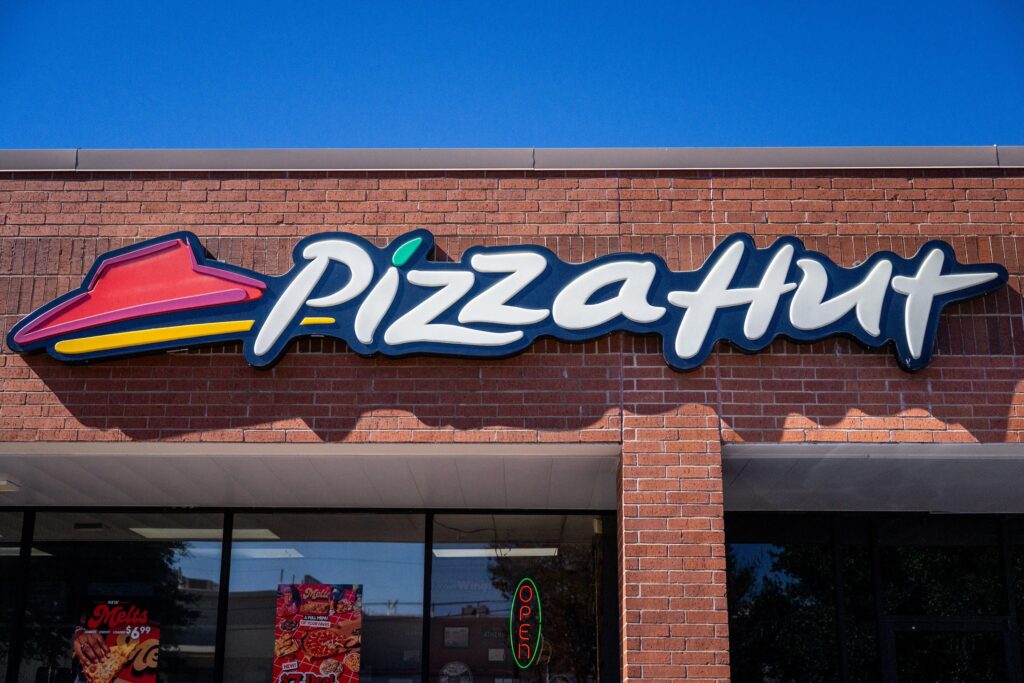- Californian fast-food restaurants are cutting workers to prepare for the $20 minimum wage.
- Pizza Hut franchisees plan to lay off around 1,200 workers, for example.
- Restaurants are also raising prices to offset wages; some are worried about spooking diners.
Fast-food restaurants in California are laying off hundreds of workers to cut back on costs as they prepare for the state's $20 minimum wage for fast-food workers that comes into force in April, a new report by The Wall Street Journal details.
Two franchisees for Pizza Hut, with restaurants across various counties in California, have said they'd lay off around 1,200 workers as they scrap delivery-driver roles to rely on third-party delivery instead.
Southern California Pizza Company, a Pizza Hut franchisee, said it planned to lay off nearly 850 workers in February, according to filings made under California's Worker Adjustment and Retraining Notification Act in December and viewed by Business Insider.
In December, another Pizza Hut franchisee, PacPizza, and its affiliates filed plans to lay off more than 350 workers in February.
And in February, Excalibur Pizza LLC, a Round Table Pizza franchisee, said it planned to lay off 70 workers in April, WARN Act filings show.
Round Table Pizza, which has more than 400 locations in the US, mainly along the West Coast, told BI that the employees being laid off were delivery drivers and that Excalibur was moving to third-party delivery services. The company said it saw the layoffs as a "transfer of jobs," with more workers required at third-party delivery services instead.
"That said, delivery service fees may increase, and the customer will most likely see even higher prices as a result of this ongoing shift," Round Table Pizza's statement continued. "This is the reality of today's restaurants."
One fast-food franchisee has even roped in his 73-year-old parents to help out after cutting staff.
Alexander Johnson, who owns 10 Auntie Anne's and Cinnabon locations in California, told the Journal that the new law would have otherwise cost him an extra $470,000 in labor a year.
Franchisees are worried about higher prices spooking diners
California is raising the state's minimum wage for workers at limited-service restaurants to $20 an hour from April 1 — 25% higher than its general minimum wage.
The law only applies to chains with at least 60 locations nationwide, though analysts note that it could lead to wage hikes at other restaurants and workplaces in the state as they try to compete for talent.
The legislation — especially in its original form as the FAST Recovery Act — faced fierce opposition from the restaurant industry, with some chains saying it would drive up operating costs so high that they'd have to lay off workers and charge customers more.
The franchisees generally set prices, and some are concerned that higher prices could scare off diners.
"I can't charge $20 for Happy Meals," Scott Rodrick, owner of 18 McDonald's restaurants in Northern California, told the Journal. He said that in the hunt to save money amid the wage increase, he was "leaving no stones unturned."
Another McDonald's franchisee who owns restaurants in Los Angeles County previously told KTLA 5 News that her food would become "unaffordable" if she raised prices enough to cover the wage increase.
Brian Hom, the owner of two Vitality Bowl açaí bowl restaurants in San Jose, told the Journal he's raising menu prices by about 10% to cover the higher wages. He's also running his stores with two employees, down from four, which he said is slowing down order times.
"I'm definitely not going to hire anymore," Hom told the Journal.
Vitality Bowls has taken "significant measures to optimize profitability," like changing its menu and improving its tech, CEO Roy Gilad told BI in a statement. The company is "well prepared" to offset higher costs, he said.
Are you a fast-food worker who'll soon be getting the new minimum wage? Or a franchisee worried about how it will affect your business? Email this reporter at [email protected].
